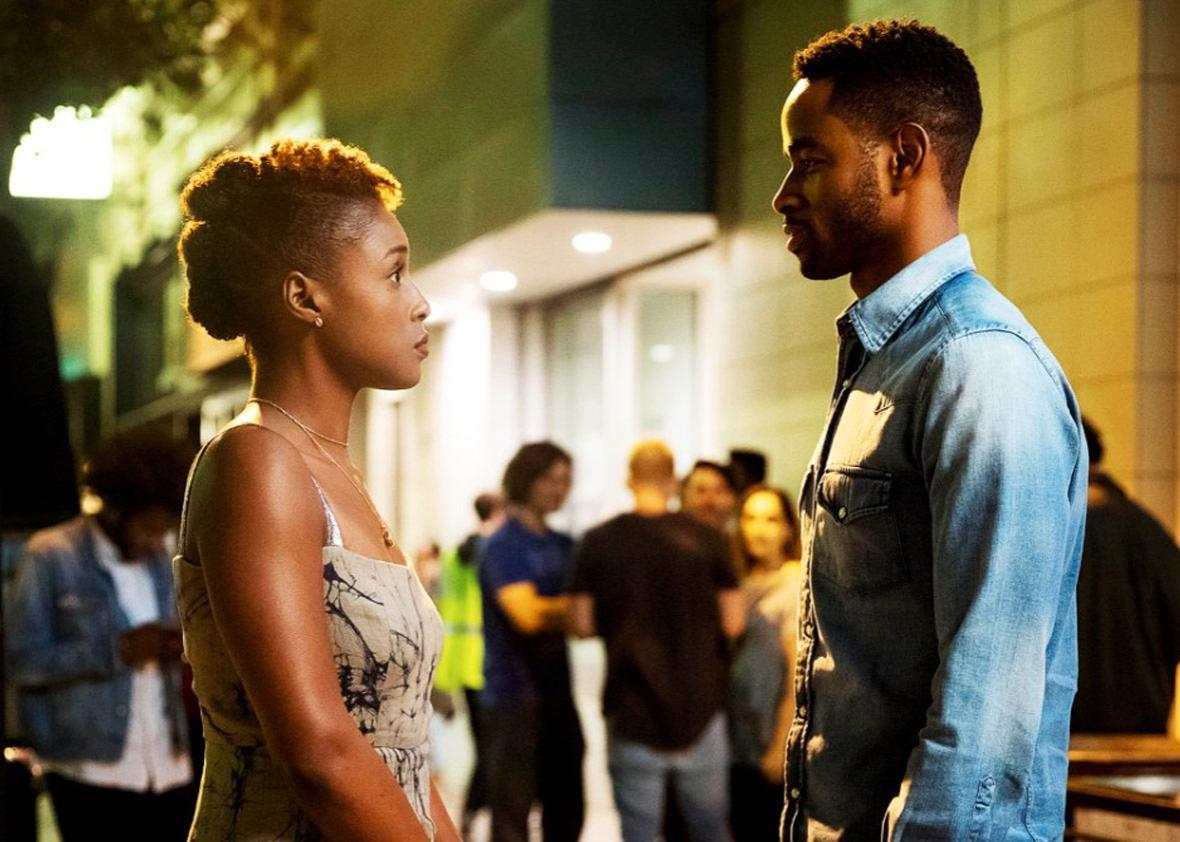Hello Willa, Todd, and June!
To backtrack a little to Todd’s entry: I also have felt that the news is the Show of 2017, and like so many other shows, one I quit midepisode. I mean, of course, none of us can really quit the news—if only—but while I used to make a point of watching not just the interview shows every Sunday morning, but also AC 360, The Lead With Jake Tapper, and All In With Chris Hayes every weekday, I eventually dropped them all (in that order). The news, like every show with a large ensemble cast, has a few characters you never care about, whose stories never progress and whose excessive share of an episode you resent; I’m pretty sure if I decorated a cake to look like a TV camera and left it in my front yard, Adam Schiff and Eric Swalwell would park themselves in front of it before the end of the day and start lecturing it about what’s not normal. Every time a host introduced its panel of “expert” pundits, I’d mute the TV immediately: Leave recapping to the professionals, nitwits.
But to Willa’s point, it’s not escape I want from the shows that aren’t the news. Rather, since the election, I can’t experience any story without being extremely conscious of its politics, which I guess makes this as good a point as any to supply my top 10 list for the year.
- Insecure
- Crazy Ex-Girlfriend
- Better Call Saul
- GLOW
- Big Little Lies
- The Handmaid’s Tale
- Brooklyn Nine-Nine
- Jane the Virgin
- Claws
- Narcos
In its fifth season, Brooklyn Nine-Nine continues to interrogate (as it were) what a cop show must be and do in 2017: I don’t think we’d get another episode now, as we did earlier on, about what scumbags defense attorneys are—not when, instead, that screen time could be spent on having two black officers debate whether it’s more effective to try to change the culture of the police department by quietly rising through the ranks or by using available mechanisms to report a beat cop who racially profiled one of them. The darkest comedy of Better Call Saul comes from the ways its central McGill brothers manipulate the eminently corruptible court system to attack each other. Big Little Lies is only very loosely a legal procedural but one that pretty clearly shows why the charge of justifiable homicide exists.
Scripted dramas have, this year, also worked in savage critiques of capitalism. Like June, I was enthralled by the Nail Artisans of Manatee County on Claws, doing a variety of very wrong things—from money laundering right up to murder—for the right reason of climbing into the middle class, because how else are they supposed to do it? In The Handmaid’s Tale, resentful men mistake the structural cause of their economic anxiety—blaming not the inborn inequalities of the capitalist system but the women who are now also succeeding in it—making them easy marks to join a rising fascist movement. Narcos continued to dramatize the futility of trying to contain the excesses of the drug trade when we’re now several centuries in to the glorification of greed in its nominally legal forms—and, on top of that, got rid of its boring white male lead, Boyd Holbrook, and replaced him with the far more compelling Pedro Pascal.
Making Pascal’s Peña the new protagonist of Narcos (as opposed to the second lead he’d been for its first two seasons) was a change that particularly pleased me, because this was the year I pretty much ran out of patience for or interest in stories about white men. Don’t care about the secret pain their unevolved psyches force them to externalize on various victims; don’t care how hard it is on them when the U.S. government sends them to commit violence in a developing nation; don’t care, don’t care, don’t care. Which is why Insecure was my top show for the year: It’s the one I looked forward to the most every week—the one, in fact, that I’d save to watch last, as a treat—because it was the smart, funny, mean, messy expression of a black female artist. I’m not saying Insecure does everything right that the ultimate “white feminist” show, Girls, did wrong, but like Todd, I’m not not saying that either.
To answer Willa’s question: I liked The Leftovers a lot—the last line of “It’s A Matt, Matt, Matt, Matt World” made me laugh for about five minutes—but it missed my list, not for the lack of overt politics in its stories, but for giving in too often to the dreamlike tendencies its soft sci-fi premise affords. “International Assassin,” from Season 2, is one of my least favorite episodes of a show I consider great, and for the series to give it a sequel in the series’ penultimate episode made me feel like if this is the stuff people like, I was maybe watching it wrong. My position is that I’ve already accepted that we’re in a world where millions of people can vanish and no one will ever know where they went or why; also giving us not one but two episodes that essentially amount to drug hallucinations feels greedy. I quit Mr. Robot in Season 1 for a reason. (I also thought the Leftovers finale was spectacular until I found out many viewers came away from Nora’s story thinking it was a lie. Why do that?! I have to reject that interpretation or hate the whole series retroactively.)
And I guess if I’m bringing up self-indulgence and dreams, I might as well end on Twin Peaks. Four minutes into the premiere, I announced, “I hate this.” Twenty minutes later, I fell asleep. And that was my experience of Twin Peaks. Everything’s not for everyone.
Contrarily yours,
Tara
